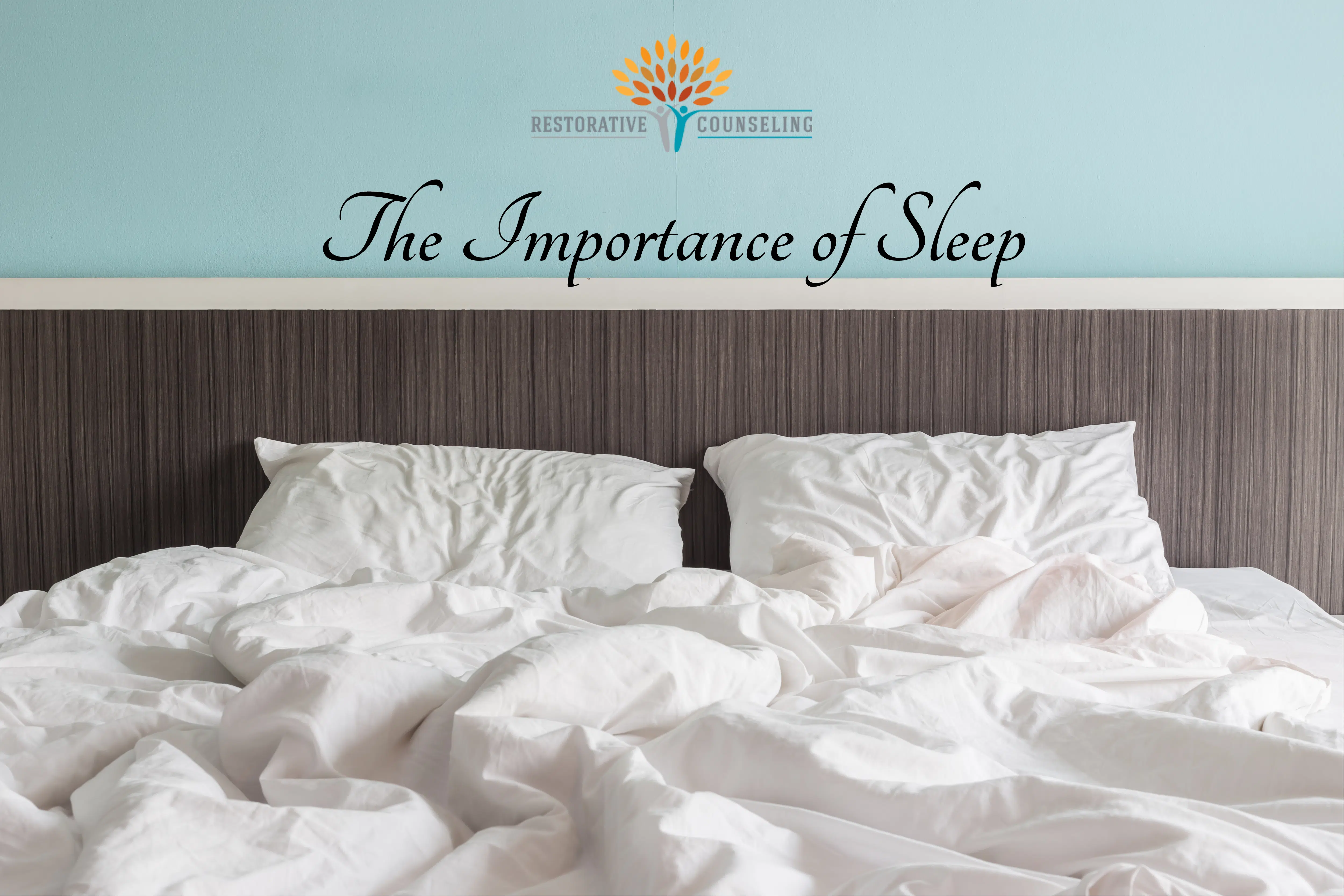Written by Stephanie Grunewald, PhD
“Sleep is overrated”, is the comment that John made to his friend over dinner. Unfortunately, John has been struggling with sleep for a while now. Some nights, he tosses and turns for hours trying to fall asleep. Other nights, he falls asleep as soon as he lays down but then finds himself wide awake at 2 AM. This pattern of disrupted sleep has become the norm for John and he decided this is how life will be. John, like so many of us, does not understand the importance of sleep.
The need for sleep is a struggle for many!
As we see in John’s story, falling asleep can be a challenge for some people. For others, staying asleep may seem impossible. Then, there are the people who try to convince themselves that they can operate with minimal sleep. Eventually, it catches up to us all.
No one operates at their best without sleep!
Despite our best efforts to convince ourselves otherwise, getting proper sleep is vital. Not only does it impact our mental health, but there are physical implications too. Here are some of the many ways sleep difficulties can negatively impact people:
- Irritability or changes in mood
- Difficulty concentrating
- Poor memory
- Early Dementia
- Weakened immunity
- High blood pressure
- Risk for diabetes
- Weight gain
- Risk of heart disease
- Risk of a stroke
- Chronic fatigue
- Impulsive behavior
- Increased accidents (falls, car accidents, etc.)
- Increased mortality
With such a serious list of potential ramifications, it is easy to see why ensuring you are getting the proper amount of Zzzzs is so important.
Do not struggle with sleeplessness any longer.
Let Us Help
Failure to properly regulate sleep can cause great distress and impair your overall quality of life.
Many individuals who suffer from anxiety, depression, and other mental health conditions may experience sleep difficulties. For some, they may sleep for prolonged periods of time, feel fatigued, or lethargic. Others feel wide awake and have little need for sleep. Whether you are sleeping too much, too little, or cannot seem to sleep despite all efforts, it is important to determine the right amount of sleep for you.
There has been much debate about how much sleep is appropriate. Many people believe 7-8 hours is required. While this is true for most, there are individuals who may require more or less to optimally function.
The National Sleep Foundation states that While women need more sleep than men, many do not get the proper amount. This is because women tend to multi-task and use more of their actual brain power than men do. However, it’s not just women vs. men, they say it is more about how much of your brain you use during the day…the more it needs to REST while we sleep.
When you think about your sleep drive, consider the metaphor of a balloon. All day, you must do enough to blow up the balloon. This balloon must be full enough to be slowly released all night long. Napping, minimal activity, etc. can impact how full and taut your balloon is, which then impacts how well you will sleep. It is important to fill your day with activities that will ensure you are ready for sleep when the time is right.
Not all sleep problems are the same!
It is important to seek professional help to assess the type and severity of your sleep difficulties. A few common sleep difficulties that are frequently misunderstood:
- Circadian Rhythm Sleep Disorders – refers to sleep phase difficulties and are more likely to impact individuals who have rotating schedules (nurses, doctors, etc.).
- Sleep Apnea – disordered breathing during the night
- Insomnia – difficulties falling or staying asleep
- Excessive Daytime Sleepiness – falling asleep involuntarily throughout the day
- Movement Related Sleep Disorders – this may include Restless Leg Syndrome (RLS) or Periodic limb movement disorder (PLMD)
Not all providers are appropriate to treat each sleep disorder. Further, treatments must match the sleep difficulty to be effective. As such, it is always recommended you share any concerns you have regarding your sleep with both your primary care doctor and mental health professionals to determine the best course of treatment.
Here are a few helpful sleep tips:
- Set a consistent wake time and stick to it!
- The bed is only for sleep. Do not lounge in bed reading, watching TV, or eating.
- Limit caffeine intake
- Limit alcohol intake
- Get out of bed when you cannot sleep; the bed is not your place to let your mind run wild.
- Schedule wind-down time at least one hour before bed.
- Avoid napping!
If anything in this blog sounds familiar and you have been struggling with your sleep, please contact us today. We are here and ready to help you start the process of getting consistent sleep.

Hello! I’m Stephanie.
I help adults identify strengths and learn strategies to manage stress, deal with life transitions, and overcome anxiety. Read more about me.
Follow Restorative Counseling
Sign up for our newsletter

